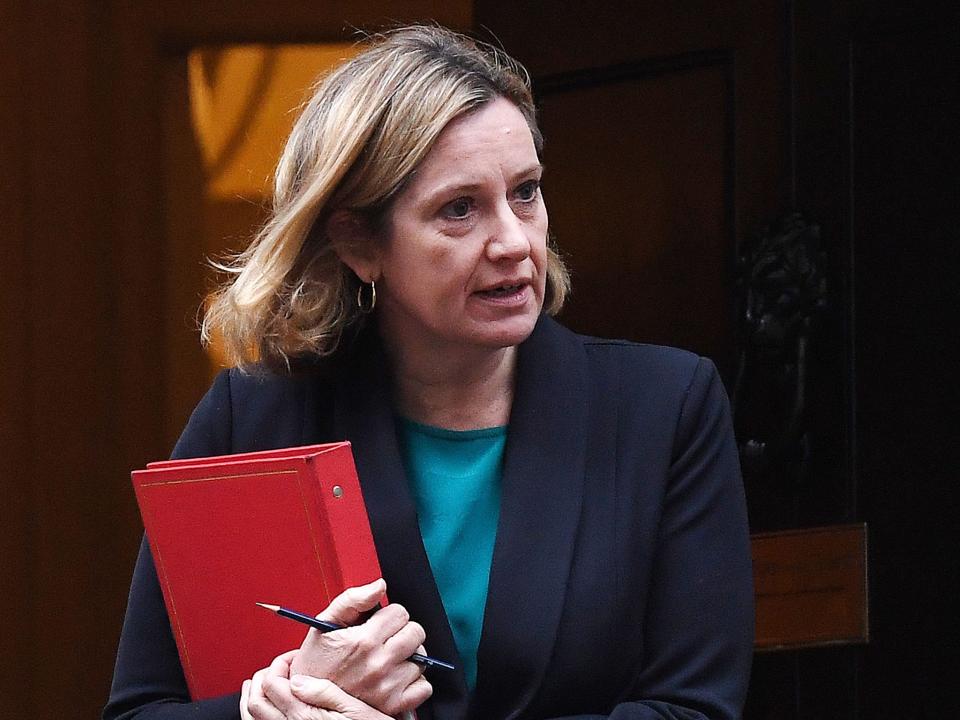Amber Rudd’s call for a cross-party consensus on Brexit is the best way forward

The Independent would like to see the United Kingdom stay in the European Union, so it might be expected that we would argue against the call from Amber Rudd, the work and pensions secretary, for the parties to work together on a Brexit deal.
If it were possible for Conservative and Labour MPs to hammer out a common position, there might be a majority in the House of Commons for a soft Brexit, possibly based on Labour’s policy of a permanent customs union. That would mean there would be less pressure for a new referendum, and it would mean that the UK would definitely leave the EU.
We would argue that the people should be given the Final Say in any case, but one of the reasons we have been driven to this conclusion is the abject failure of our political leaders to resolve the deadlock in parliament. If, at this late stage, MPs such as Ms Rudd start to show leadership and reach out across party lines, that cannot be a bad thing.
Ms Rudd says in a newspaper article that compromise is “something that people do in the real world all the time, but which seems so alien in our political culture”. This is not quite true. The prime minister has been trying to strike a compromise between the two wings of her own party for two and a half years now, and she has managed to come up with a solution that neither side likes.
Theresa May should have adopted a cross-party approach from the start, as she was urged to do, not just by The Independent, but by Yvette Cooper, the Labour chair of the home affairs select committee. She was never going to satisfy the unicorn fanciers on the hard-Brexit wing of her own party and now she is paying a terrible price for appeasing them for too long.
If she had set up, for example, a cross-party commission to look at the problem of the Irish border, it might have been possible to construct a solution that could command support across the House. It might not have looked very different from the so-called backstop terms for guaranteeing an open border, but it is possible that more MPs would have understood why it was necessary for the UK to give such a binding commitment to avoid checks and controls on trade between Northern Ireland and the Republic.
It is too late for that now. But Ms Rudd is right all the same to say that, with three months to go before the intended Brexit date, “We need to try something different.” And she is right to say, as the Rolling Stones once did, “That requires politicians to be more prepared to work with anyone who – like me – is willing to accept you can’t always get what you want.”
Who knows whether a cross-party approach might lead to a soft Brexit or to postponing Brexit in order to hold a referendum. But it needs leaders to talk to each other across party divides, and time is now very short.

 Yahoo News
Yahoo News 